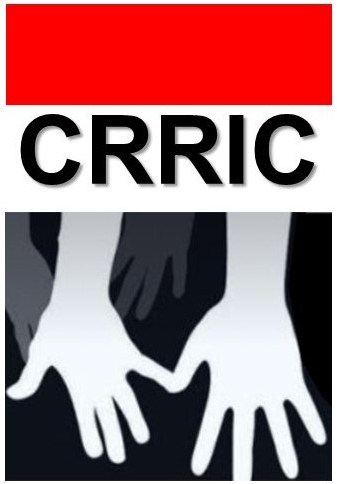CONFLICT AND RESILIENCE RESEARCH INSTITUTE, CANADA (CRRIC)
CRRIC is a Winnipeg based research organization which studies emerging social conflict issues associated with genocide, ethnocide, radicalization, human rights violation, statelessness and refuge, as well as resilience and evolving livelihood strategies of the victims of perpetration.
CRRIC research teams is composed of a group of scholars, experts and development practitioners committed to make a difference in applied social studies through knowledge translation in peace and justice research and humanitarian action inside and outside Canada.
CRRIC views social well-being as a manifestation of people’s access to social enterprise and social justice. Therefore, CRRIC conducts time-sensitive peacebuilding policy dialogues, as well as develop programs and intervention strategies to advance safety-net supports, and capacity building and resilience formation. CRRIC’s livelihood development priority goes for women and children—homeless street children; political, ethnic and environmental refugees; child workers in sex trade and hazardous workplace settings; immigrants and refugees, stateless and displaced people, and other marginalized social groups including the indigenous communities globally.
CRRIC views research and action as two sides of a coin. Its voluntary action research initiatives and consequent dialogues are intended to dig deep into outcome-oriented practical actions against conflicts, and barriers to resilience, peace and social justice. CRRIC adopts a social epidemiology approach asserting that stigma, prejudice and social exclusions (against HIV/AIDS, sexually marginalized groups etc.) cause social diseases (i.e., dowry-terror, addiction and substance abuse, child marriage, child abuse, honor killing, female infanticide, feticide, trafficking etc.) contributing to erosions of peace and social justice in society.
CRRIC, with the ‘knowledge translation’ approach, commits to work together with research and grassroots development partners to extend expert technical supports in project appraisal, program and project development, feasibility study, impact assessment, strategic planning, monitoring, evaluation and report writing.
CRRIC specializes in qualitative study, in-depth and participatory probing, and triangulation research. It also carries out trainings and capacity building workshops aligning modules and topics with changing societal contexts.
CRRIC offers services through research partnership unit (RPU). The objective of this unit is to build mutually beneficial research, training, advocacy and transcription service partnership with universities, research institutions, GO-NGOs and individual researchers. While playing partnership roles in research projects of universities and GO- NGOs, CRRIC does not ignore persistent individual-level need for crucial research and language supports. CRRIC extends logistic and technical support to individual researchers or graduate students of overseas universities conducting field study for their social science projects in Canada.
CRRIC PARTICULARLY UNDERTAKES RESEARCH AND ADVOCACY ON THE FOLLOWING ASPECTS:
VULNERABILITIES AND CONFLICT TO PEACEBUILDING: With human rights operations of the Canadian Museum for Human Rights (CMHR)–Winnipeg is becoming a leading peacebuilding hub in Canada. Increased number of immigrants and refugees are choosing Winnipeg as their future home. CRRIC is proud to serve world communities’ peacebuilding and social well-being research needs from Winnipeg.
RESILIENCE AND SURVIVAL STRATEGIES: Humans nowadays are more vulnerable to ecocide, genocide, extermination, abuse, and displacement than any other times in history. Many are forced to constantly adapt and re-adapt, often through unsustainable measures, that arrest their capacity and resilience to cope with vulnerabilities. Canada serves global communities’ livelihood and survival efforts through research and intervention supports
SECURITY AND SAFETY-NET: Unconventional forms of terrorism and radicalism are on the rise globally. No communities are immune to threats of widespread violence and massacre. Political interventions are failing, and people are favouring human-sensitive approaches towards conflict resolution, and peacebuilding.




